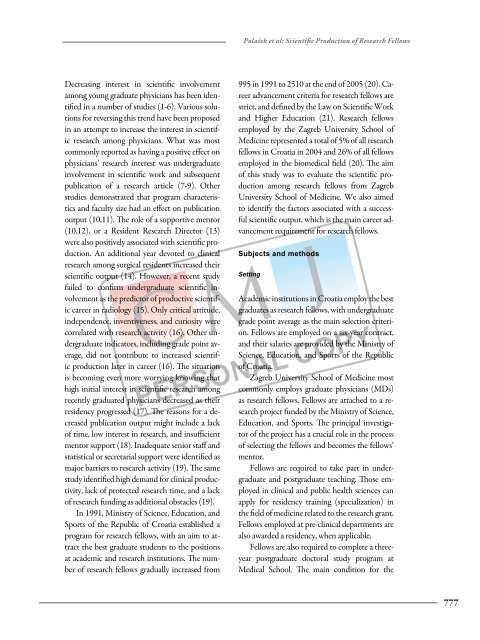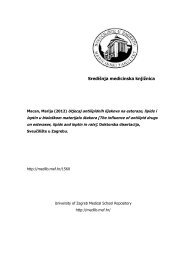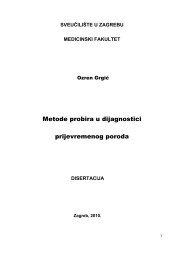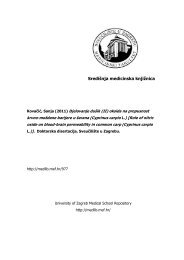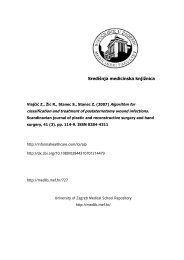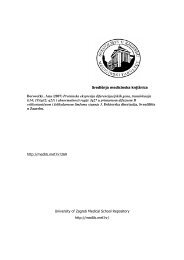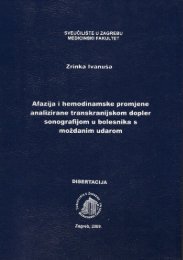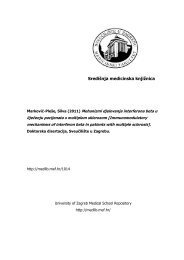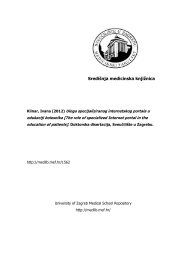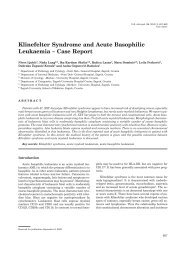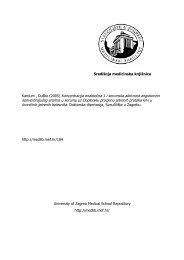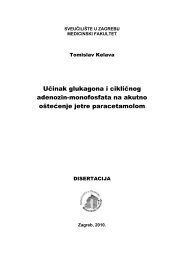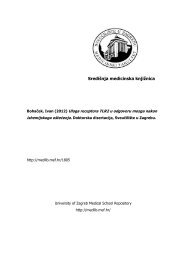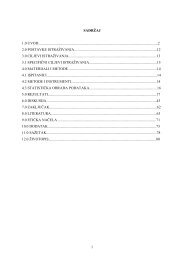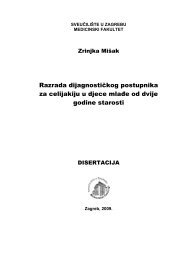pdf (519 KB), English, Pages 730
pdf (519 KB), English, Pages 730
pdf (519 KB), English, Pages 730
Create successful ePaper yourself
Turn your PDF publications into a flip-book with our unique Google optimized e-Paper software.
Decreasing interest in scientific involvement<br />
among young graduate physicians has been identified<br />
in a number of studies (1-6). Various solutions<br />
for reversing this trend have been proposed<br />
in an attempt to increase the interest in scientific<br />
research among physicians. What was most<br />
commonly reported as having a positive effect on<br />
physicians’ research interest was undergraduate<br />
involvement in scientific work and subsequent<br />
publication of a research article (7-9). Other<br />
studies demonstrated that program characteristics<br />
and faculty size had an effect on publication<br />
output (10,11). The role of a supportive mentor<br />
(10,12), or a Resident Research Director (13)<br />
were also positively associated with scientific production.<br />
An additional year devoted to clinical<br />
research among surgical residents increased their<br />
scientific output (14). However, a recent study<br />
failed to confirm undergraduate scientific involvement<br />
as the predictor of productive scientific<br />
career in radiology (15). Only critical attitude,<br />
independence, inventiveness, and curiosity were<br />
correlated with research activity (16). Other undergraduate<br />
indicators, including grade point average,<br />
did not contribute to increased scientific<br />
production later in career (16). The situation<br />
is becoming even more worrying knowing that<br />
high initial interest in scientific research among<br />
recently graduated physicians decreased as their<br />
residency progressed (17). The reasons for a decreased<br />
publication output might include a lack<br />
of time, low interest in research, and insufficient<br />
mentor support (18). Inadequate senior staff and<br />
statistical or secretarial support were identified as<br />
major barriers to research activity (19). The same<br />
study identified high demand for clinical productivity,<br />
lack of protected research time, and a lack<br />
of research funding as additional obstacles (19).<br />
In 1991, Ministry of Science, Education, and<br />
Sports of the Republic of Croatia established a<br />
program for research fellows, with an aim to attract<br />
the best graduate students to the positions<br />
at academic and research institutions. The number<br />
of research fellows gradually increased from<br />
Polašek et al: Scientific Production of Research Fellows<br />
995 in 1991 to 2510 at the end of 2005 (20). Career<br />
advancement criteria for research fellows are<br />
strict, and defined by the Law on Scientific Work<br />
and Higher Education (21). Research fellows<br />
employed by the Zagreb University School of<br />
Medicine represented a total of 5% of all research<br />
fellows in Croatia in 2004 and 26% of all fellows<br />
employed in the biomedical field (20). The aim<br />
of this study was to evaluate the scientific production<br />
among research fellows from Zagreb<br />
University School of Medicine. We also aimed<br />
to identify the factors associated with a successful<br />
scientific output, which is the main career advancement<br />
requirement for research fellows.<br />
Subjects and methods<br />
Setting<br />
Academic institutions in Croatia employ the best<br />
graduates as research fellows, with undergraduate<br />
grade point average as the main selection criterion.<br />
Fellows are employed on a six-year contract,<br />
and their salaries are provided by the Ministry of<br />
Science, Education, and Sports of the Republic<br />
of Croatia.<br />
Zagreb University School of Medicine most<br />
commonly employs graduate physicians (MDs)<br />
as research fellows. Fellows are attached to a research<br />
project funded by the Ministry of Science,<br />
Education, and Sports. The principal investigator<br />
of the project has a crucial role in the process<br />
of selecting the fellows and becomes the fellows’<br />
mentor.<br />
Fellows are required to take part in undergraduate<br />
and postgraduate teaching. Those employed<br />
in clinical and public health sciences can<br />
apply for residency training (specialization) in<br />
the field of medicine related to the research grant.<br />
Fellows employed at pre-clinical departments are<br />
also awarded a residency, when applicable.<br />
Fellows are also required to complete a threeyear<br />
postgraduate doctoral study program at<br />
Medical School. The main condition for the<br />
777


